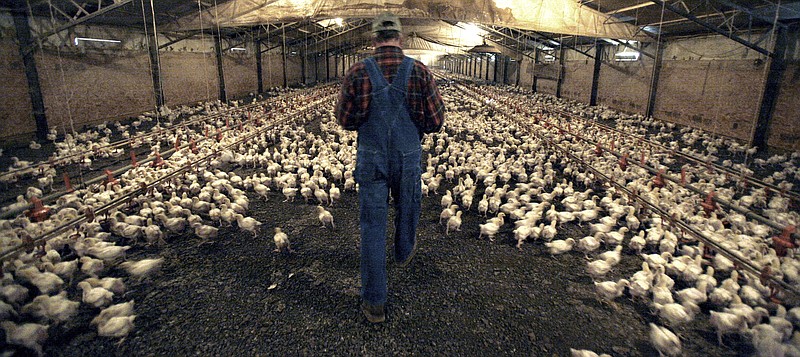DALTON, Ga. - Chicken houses and their fowl smells won't be allowed in one spot of rural Whitfield County.
With a 4-0 vote, the county commission declined John Ridley's request Monday to switch the zoning on 27 acres of land on Ridge Road from residential to agricultural. Ridley appeared before the local zoning commission three weeks ago, but several neighbors objected to his proposal, saying his plan to bring 20,000 chickens into the region would introduce a pungent smell of feces in their community.
The zoning commission recommended Ridley's property remain residential. The commission's vote ended the debate.
Ridley, who did not attend Monday's meeting, said afterward he plans to put the chicken houses on another part of 480 acres his family owns. As for the spot he first tried? He's going to make money on it some other way. Maybe with a trailer park.
"When you had so many people stand up there and just boldfaced lie before the board, I don't play like that," Ridley said, referring to his neighbors' objections that his chicken houses would bring bad smells, lower the property values and cause environmental concerns. "I let them win this battle, but I will win the war. I will have the last laugh. That may sound cocky or something. But they want to play games and don't want to look at a chicken house? We'll see how they want to look at a trailer park."
One neighbor, Dan Lovingood, laughed when he heard Ridley's next plan.
"You can't put more than one house per acre" under the zoning plan, Lovingood said. "He can try. But he won't get that, either."
Ridley said neighbors wouldn't smell the chicken poop too strongly because big fans inside the houses would calm the smells a bit. Neighbors also said the chicken houses would attract more semitrailers to their community, located in a rural part of the county east of Dalton.
But Ridley argued that plenty of trucks already rumble down those roads. Commercial farming - and the semitrailers that sometimes come with it - are just part of living in a rural area, he said.
Lovingood also raised environmental concerns, but Ridley said his criticisms were unfounded. The state environmental agency is supposed to monitor farms, and he would comply with the rules.
Still, Lovingood worried chicken feed would attract rats, and rats would attract skunks, and skunks would raise another issue of smell. Plus, he said, the manure from the chickens would be spread on the grass around the houses, and Lovingood believes the rainwater would leach off it, spreading nitrates and bacteria to neighbors' yards.
"I'm glad we didn't have to take [the issue] to superior court" for an appeal, he said after the hearing. "It's good. I'm real pleased."
Contact Staff Writer Tyler Jett at tjett@timesfreepress.com or 423-757-6476. Follow him on Twitter @LetsJett.
